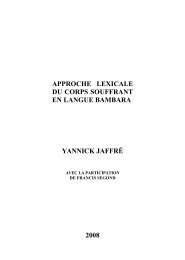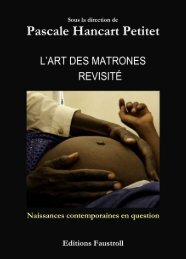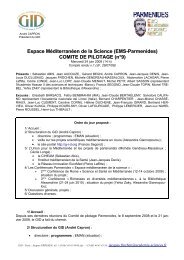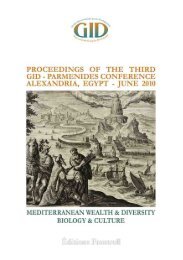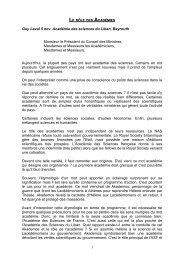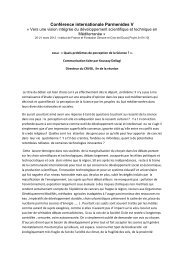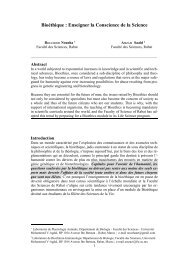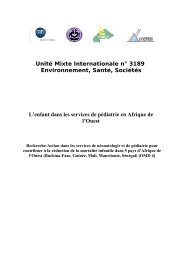Create successful ePaper yourself
Turn your PDF publications into a flip-book with our unique Google optimized e-Paper software.
spouse, aggravated rape, gang rape, and suggests a need for special statutes<br />
to hand these. Michalski (2005:617) refers to the need felt by some<br />
scholars for the term abuse that embraces the various types of violence<br />
- physical, psychological, economic, sexual, verbal, emotional or spiritual<br />
abuse (e.g., DeKeseredy and MacLeod, 1997). Moore et al. (2007)<br />
have found the term ‘sexual coercion’ more useful in their study of a<br />
variety of sexual incidents in which the victim is subjected to a sexual<br />
act, even if he or she does not actively protest. Thus the girl who agrees<br />
to sex because it is her means of obtaining money for pressing needs or<br />
out of fear that if she does not permit it her boyfriend might have sex<br />
with another, is said to have experienced coerced sex. Thus rape and<br />
defilement would be types of coerced sex.<br />
As a social phenomenon, sexual violence can best be understood within<br />
its ethnographic context; Ilika 2005 remarks thus:<br />
… there are cultural and traditional differences in the perception of what<br />
constitutes intimate partner violence. What is considered as partner violence<br />
by international organisations or agencies or in Europe and America may<br />
not be perceived as violence in Africa. [78]<br />
And many studies affirm this (Michalski: 2005; Wood: 2005; Muganyizi,<br />
Kilewo and Moshiro 2004; Henry and Fayorsey 2002). Moore et al.<br />
(2007: 63) remark thus: ‘What is experienced as coercion is gender and<br />
culturally specific’, a comment that is doubly significant given that what<br />
men see as rape may not be the same as what women experiencing it<br />
perceive. Factoring in of context is also critical for the adoption of<br />
policy options that are culturally sensitive and therefore likely to gain<br />
community support when implemented. As the Ghana Demographic and<br />
Health Survey 2008 (GDHS 2008) acknowledges: ‘... a) what constitutes<br />
violence or abuse varies across cultures and individuals; b) a culture of<br />
silence usually surrounds domestic violence and can affect reporting;<br />
and c) the sensitivity of the topic ...’ 1<br />
While sadism accounts for gratuitous violence, inordinate concupiscence<br />
may explain rape, paedophilia and other forms of sexual violence<br />
in both urban and rural settings. The question of how bad rape really is<br />
has sometimes been posed (see Baber 1987), with answers differenti-<br />
1<br />
See Ghana Statistical Service (GSS), Ghana Health Service (GHS), and ICF Macro.<br />
2009. Ghana Demographic and Health Survey 2008. Accra, Ghana: GSS, GHS, and<br />
ICF Macro. P.300<br />
- 181 -




